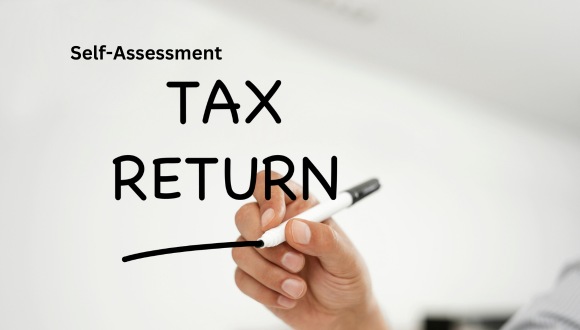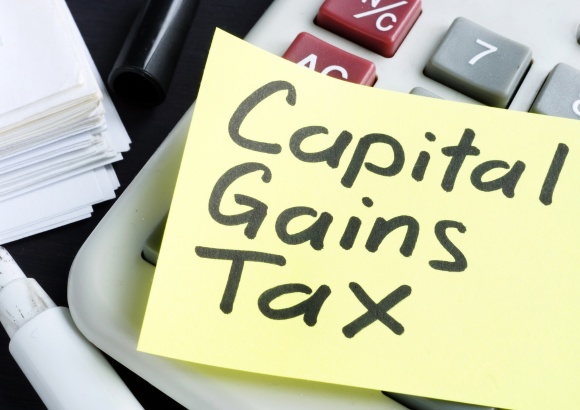


If you have a property investment portfolio in the UK, even if you own a single property, you'll be aware of the amount of work involved in sorting out the accounting side. Investing in property can be a lucrative endeavour, but the inevitable 'mountain of paperwork' can quickly become tiresome, and you can easily become snared in red tape; keeping up with all the rules and regulations can mean the difference between success and failure.
Trawling through the legal issues, taxes, and accounting duties is a chore that few property investors enjoy. At Prescient Accounting, we excel in this sort of thing; it's what our specialist staff are trained for. This isn't something that all accountants can handle, and that makes us the perfect choice.
So, how exactly can we be of assistance?
We start by listening. You tell us your story so far, and we'll create a tailor-made solution to fit your circumstances perfectly.
Here are some of the areas in which we specialise...

Let us know what you need from your accountants, we’re happy to help.
We believe that the role of the accountant is much more than dealing with pure compliance. That’s why we’re offering a free video or telephone call with one of our team of chartered accountants, to give you straightforward and open dialogue about your tax and accounting affairs.

Property taxes can be a nightmare to sort out - but they don't have to be!
With expert guidance from Prescient Accounting's property tax specialists, you'll soon get to grips with the finer details.
Our highly-trained property accountants will guide you through the potential pitfalls of property taxes, including:
Changes to the regulations sent the property investment world into turmoil fairly recently, resulting in significant losses of rental revenue for many.
This was partly due to the differences in the tax liabilities in relation to personal property as opposed to property bought by or through a limited company.
This quick overview spells out the difference clearly:
Our first-rate accounting services for property investors includes advice on how to reduce your property tax bill.
As a property investor or someone considering buy-to-let, understanding SDLT is crucial for planning your purchase.
Mostly referred to as Stamp Duty, SDLT is a tax levied on the purchase of land and property in England and Northern Ireland. It's essentially a one-time tax based on the property's purchase price. Scotland and Wales have their own land transaction taxes with different rules.
The SDLT rates for residential properties in England and Northern Ireland are tiered, meaning you pay different rates on different portions of the purchase price:
For second homes and buy-to-let, you'll typically pay an additional 3% on top of the standard rates for residential properties purchased as second homes or buy-to-let investments.
Also, if a property has two or more dwellings, higher SDLT rates might apply, depending on the type and value of each dwelling.
Understanding SDLT is crucial for property investors as it directly impacts your upfront costs. When considering potential investments, factor in the SDLT you'll pay to accurately assess the overall financial feasibility.
While this provides a general overview, SDLT can be complex, especially with specific circumstances. Consulting a qualified accountant or tax advisor experienced in property transactions is highly recommended to ensure you're applying the correct rates and maximising any potential relief you might be entitled to.
Our accountants are specifically trained in this area and will ensure that you get the best advice to steer you through this potentially problematic process.
While rental income can be a fantastic source of income, it also comes with tax responsibilities. Here's what you need to know about declaring your property income on your Self Assessment tax return:

This is the main tax you'll pay on your rental income, with the rate depending on your total taxable income. The current tax property tax rates for individuals are:
If you sell a UK property (excluding your main residence), you may need to pay CGT on any profit you make. See our capital gains tax accountants page for more information. The rates and allowances for CGT are separate from Income Tax (see below).
This point is often overlooked, and can land you in hot water with HMRC!
Landlords and property owners must pay Class 2 National Insurance if they make more than £6,515 profit from a property portfolio.
Accurately declaring your income and paying the correct tax is crucial. Failing to do so can lead to penalties and interest charges from HMRC. Your Prescient Accounting property accountant will make sure you stay well within the HMRC compliance regulations.
Knowing you're fulfilling your tax obligations allows you to enjoy your rental income with clarity and avoid potential legal complexities.
And finally, keeping accurate records and understanding expenses you can deduct helps you minimise your tax burden and maximise your profit.
Understanding the associated Inheritance Tax (IHT) implications is crucial in relation to property investments. Here's a basic breakdown of the rules and rates in the UK, specifically for property investments:
The property's market value on the date of death determines its IHT value. Factors like location, condition, and development potential influence this valuation.
It's important to keep these key points in mind:
Professional Advice From Prescient Accounting
To deal with IHT and optimise your estate plan, you'll need to understand intricate laws and take into account your personal considerations. Your Prescient Accounting tax advisor will be your constant guide, always on hand to offer the best way forward.
In a nutshell, they'll be able to:
It's in your best interests to consult with a qualified professional before taking any action related to your estate planning or property investments.
By understanding the IHT rules and seeking professional guidance, you can ensure your property investments benefit your loved ones while minimising their tax burden, allowing them to inherit wealth rather than tax liabilities.

UK Property Investment And The VAT Rules
Understanding Value Added Tax (VAT) is crucial for UK property investors, as it can significantly impact your costs and tax obligations.
This breakdown explains it briefly, but it's wise to discuss this with our experts to get a better idea of how to deal with this issue.
If renting out a commercial property and your taxable turnover (including rent) exceeds the VAT registration threshold (£85,000 in 2023/24), you must register for VAT and charge it on your rent.
However, if you are renting out a residential property, the supply is exempt from VAT, regardless of your income level.
VAT-registered landlords can reclaim VAT on expenses related to the rented property, such as repairs, maintenance, and management fees.
For mixed-use properties that have both residential and commercial elements, VAT rules become more complex, so we'll talk you through this at a later stage.
Finally, if a commercial property remains unoccupied for more than six months, you might be liable for Empty Property Rate, regardless of VAT registration.
While property taxes can hit your profits hard, many of the associated costs can, thankfully, be deducted from your income from rental properties to reduce your taxable profits. Here's an overview of allowable expenses you can claim:
Marketing your property to find tenants is an allowable expense, so you may be able to claim advertising fees.
Subscription fees to relevant property investment magazines or professional bodies might be claimable, and certain bank charges related to your mortgage can be included.
Don't worry - we'll explore all avenues for you to ensure that you claim all the expenses due to you, allowing you to keep more of your profits!


Thousands of people know that property investments are a fantastic way to build wealth, but many of them fall down when it comes to investigating and understanding the tax implications.
Capital Gains Tax is just one of the areas where new investors come unstuck, and our mission is to help you find a way through.
Here's a breakdown of Capital Gains Tax (CGT) in the UK as it relates to property investment:
CGT is a tax charged on the profit you make when you sell (or "dispose of") an asset that's increased in value, including property. It's the gain you make that's taxed, not the total sale price.
Your main residence (the home you typically live in most of the time) receives special treatment and is generally exempt from CGT. However, there are exceptions, such as if you let out a portion of it or use it for business purposes.
When selling properties, the date of sale is extremely important, as the tax rate you pay depends on the tax band you fall into in the year you sell. We can help you plan your sale strategically to potentially minimise your tax burden.
It's vital to keep accurate records of property purchase costs, renovations, and improvements, as these can help reduce your taxable gain when selling. Again, we'll be by your side to ensure that everything runs as smoothly as possible.
Navigating CGT, especially with complex situations, can be tricky. Prescient Accounting's qualified accountants and tax advisors specialise in property transactions and will:
Being a UK property investor can be incredibly rewarding, but navigating the financial complexities of the UK real estate market requires specialised knowledge beyond basic accounting. Here's why partnering with a qualified property accountant can be your secret weapon:
In addition to all this, a Prescient Accounting specialist will go further.
For example, when you need to talk to lenders, solicitors, or other property professionals, they'll communicate on your behalf.
Our property accountants use the latest cloud-based accounting software and property management tools, improving efficiency, accessibility, and data security.


We understand that no two investments are the same, which is why our specialists customise their services to your specific situation, whether you're a first-time investor or a seasoned pro.
With our expert knowledge, strategic guidance, and comprehensive financial management, you can handle the intricacies of UK property investment with confidence, maximise your profits, and sleep soundly knowing you're on the right track with Prescient Accounting.


Property accounting involves managing financial records, taxes, and transactions related to real estate investments. It benefits investors by enhancing profitability through strategic tax planning and financial management.
A property accountant can help you save on taxes by identifying deductible expenses, advising on tax-efficient investment structures, and ensuring compliance with tax laws to maximise your tax savings.
Key tax considerations for UK property investors include understanding capital gains tax, income tax on rental earnings, inheritance tax implications, and the benefits of tax-efficient investment vehicles.
Yes, property accountants can assist with buy-to-let properties by offering advice on tax deductions, financial planning, and strategies to maximise rental yield and capital growth.
Property accounting differs for commercial and residential properties in terms of tax treatments, allowable expenses, VAT considerations, and the structuring of investments to optimise returns.
Capital gains tax implications for UK property sales involve paying tax on the profit from the sale of a property that's not your main home. Strategies such as claiming reliefs can reduce the tax bill.


We believe that the role of the accountant is much more than dealing with pure compliance. That’s why we’re offering a free video or telephone call with one of our team of chartered accountants, to give you straightforward and open dialogue about your tax and accounting affairs.